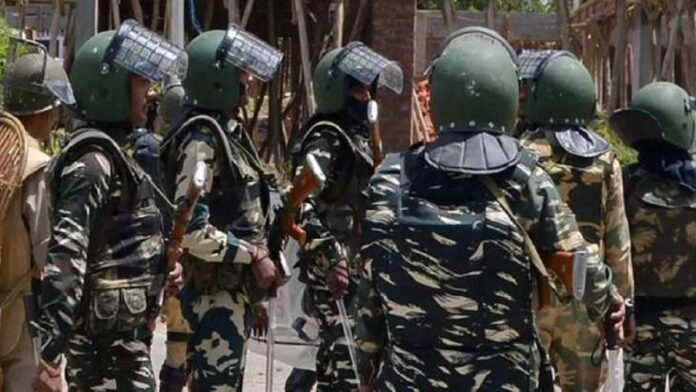As Tripura gears up for another crucial electoral process, the presence of central forces has become a focal point in ensuring free, fair, and peaceful elections. With the aim of safeguarding the democratic process and maintaining law and order, the Election Commission of India has deployed 70 companies of central forces in the state. This move comes amidst heightened tensions and concerns over electoral integrity, making the presence of security personnel imperative.
Tripura, nestled in the northeastern part of India, has a history marked by political volatility and occasional instances of violence during elections. In the past, allegations of voter intimidation, booth capturing, and other malpractices have marred the electoral process. To counter such challenges and instill confidence among voters, the Election Commission has taken proactive measures by deploying a significant number of central forces.
The deployment of 70 companies of central forces underscores the seriousness with which the Election Commission regards the electoral process in Tripura. These forces comprise personnel from various paramilitary units, including the Central Reserve Police Force (CRPF), Border Security Force (BSF), and Sashastra Seema Bal (SSB). Their primary mandate is to ensure the smooth conduct of elections by providing a secure environment for voters to exercise their franchise without fear or coercion.
One of the key responsibilities of the central forces is to secure polling stations across the state. By maintaining a visible presence at polling booths, they deter any attempts at disruption or violence. Additionally, their deployment facilitates the safe transportation of electronic voting machines (EVMs) and other election-related materials, crucial for the integrity of the electoral process.
Moreover, the central forces play a vital role in maintaining law and order during the election period. Their presence not only prevents clashes between rival political factions but also ensures the safety of candidates, election officials, and voters. By swiftly responding to any incidents of unrest or violence, these forces help in containing potential flare-ups and maintaining the overall peace.
Furthermore, the deployment of central forces serves as a confidence-building measure for voters, especially in areas prone to electoral irregularities. Their impartiality and professionalism reassure the electorate that their votes will be cast and counted without any external influence or intimidation. This, in turn, promotes voter turnout and strengthens the democratic fabric of the state.
The decision to deploy 70 companies of central forces in Tripura is also a testament to the Election Commission’s commitment to conducting elections with transparency and fairness. By proactively addressing security concerns and ensuring the presence of adequate personnel, the Commission aims to uphold the principles of democracy and uphold the sanctity of the electoral process.
However, while the deployment of central forces is crucial for maintaining security and order during elections, it is equally important to respect the rights of the local population and adhere to democratic norms. The forces must operate within the framework of the law, refraining from any actions that could be perceived as biased or coercive.
In a nutshell, the deployment of 70 companies of central forces in Tripura for elections underscores the significance of ensuring a free, fair, and peaceful electoral process. By providing security at polling stations, maintaining law and order, and instilling confidence among voters, these forces play a pivotal role in upholding the integrity of democracy. As Tripura prepares to cast its vote, the presence of central forces stands as a symbol of the nation’s commitment to safeguarding the democratic rights of its citizens.




